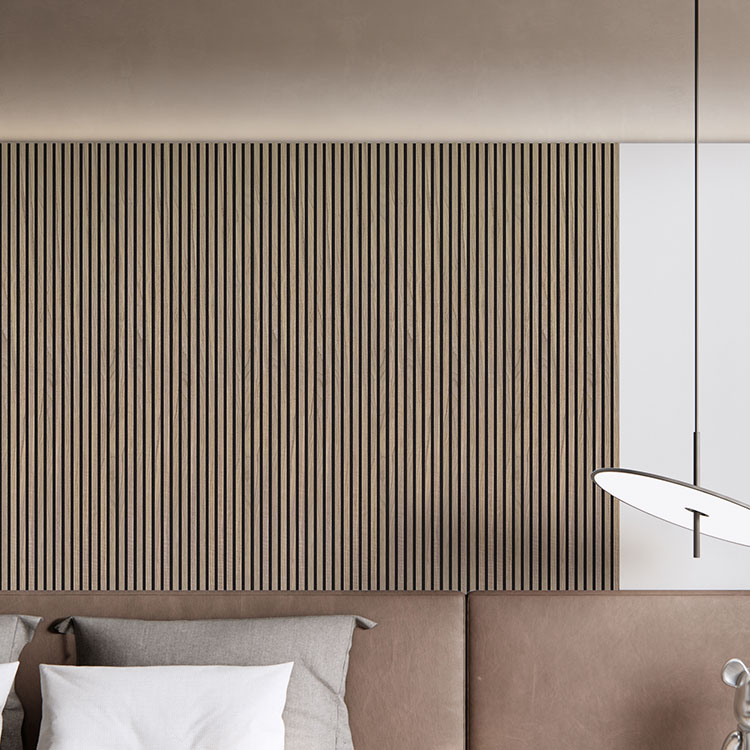This article was last revised in 181 Days ago, some of its contents may have changed. If you have any questions, you can ask the author。
When it comes to creating the perfect acoustic environment—whether in a recording studio, office, or living space—installing acoustic panels is one of the most effective ways to improve sound quality. But a common question we hear is:
Does it matter where you put acoustic panels?
The answer is a definite yes.
As a leading manufacturer and exporter of wood slat acoustic panels, Guangdong Leeyin Acoustics has helped thousands of clients worldwide design sound-optimized spaces. In this blog post, we’ll explore why panel placement matters, how to find optimal positions, and what to consider when planning your acoustic treatment.
🎯 Why Panel Placement Is Critical
Acoustic panels work by absorbing sound reflections that bounce off hard surfaces. Poor placement can result in:
-
Minimal improvement in sound quality
-
Lingering echoes or reverb
-
Uneven sound across the room
Properly placed panels target first reflection points, flutter echo zones, and standing wave hotspots—dramatically improving acoustic comfort and clarity.
📌 Where Should You Put Acoustic Panels?
✅ 1. First Reflection Points (Walls & Ceiling)
These are the surfaces where sound waves reflect directly from the source (e.g., speakers) to your ears. Treating these areas reduces early reflections and increases sound clarity.
Use the mirror trick:
Sit in the listening position, and have someone move a mirror along the wall. Wherever you can see the speaker from your seat, mark that point. That’s a first reflection spot.
✅ 2. Opposing Walls (Flutter Echo Zones)
When two parallel walls reflect sound back and forth, flutter echo can occur. Placing acoustic panels on both opposing walls helps eliminate this harsh, repetitive sound.
✅ 3. Rear Wall (Bass Traps & Panels)
In home theaters and studios, the back wall is prone to low-frequency buildup. Thicker acoustic panels or bass traps can be installed here to control boomy bass and improve sound balance.
✅ 4. Ceiling (Especially in Small Rooms or Studios)
Often overlooked, the ceiling can be a major reflection surface. Mounting acoustic panels above the listening area—known as a cloud panel—can significantly reduce vertical sound reflections.
✅ 5. Corners (Low-Frequency Absorption)
Corners tend to trap bass frequencies. Although not always suitable for standard wall panels, custom corner panels or bass traps can be very effective.
🚫 Where Not to Put Panels
Avoid installing acoustic panels:
-
In places with no sound reflection or interaction
-
Too low to the ground (where sound rarely travels directly)
-
Randomly scattered—this reduces overall effectiveness
Proper acoustic planning is always more efficient than over-installing panels.
🪵 Why Choose Wood Slat Acoustic Panels?
At Guangdong Leeyin Acoustics, we specialize in high-performance wood slat acoustic panels backed with eco-friendly PET felt. These panels are not only effective in sound absorption, but also enhance the aesthetics of your room.
Key benefits:
-
Suitable for both walls and ceilings
-
Available in various finishes and thicknesses
-
Made with FSC-certified wood
-
Easy to install with screw, clip, or adhesive systems
🏭 Our Expertise at Leeyin Acoustics
With over 20,000㎡ of modern production facilities, Leeyin Acoustics leads the way in acoustic innovation and design.
✅ Industry-Leading Exporter in China
✅ Over 10 years of experience in the global acoustic panel market
✅ Strict quality control according to international standards
✅ Custom solutions for architects, designers, and contractors
